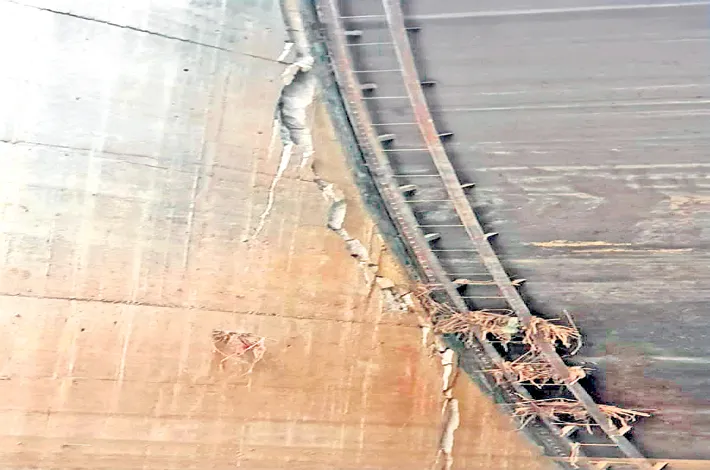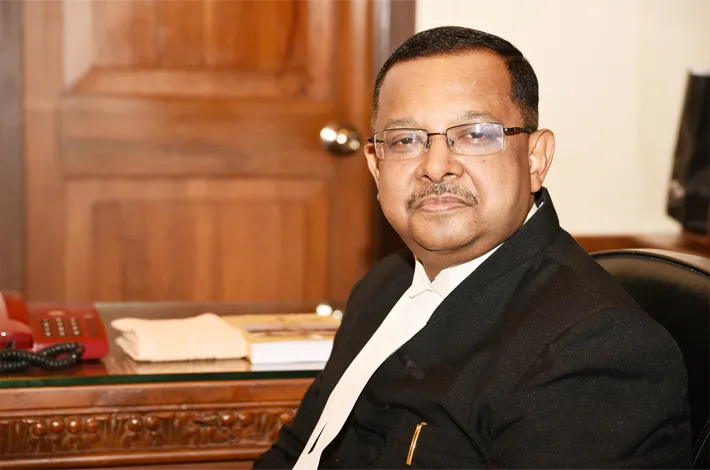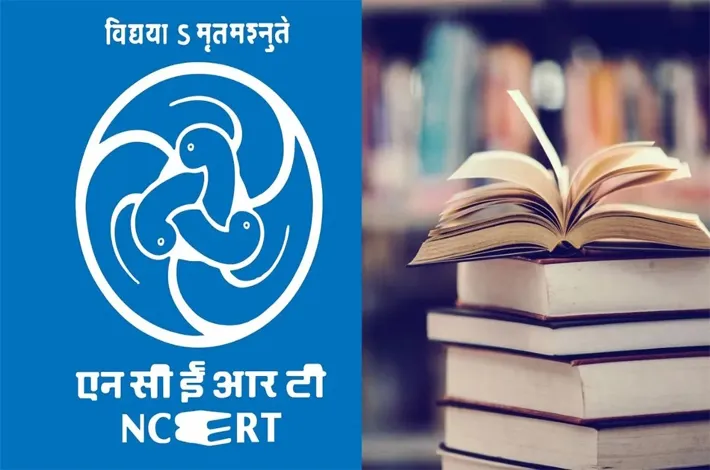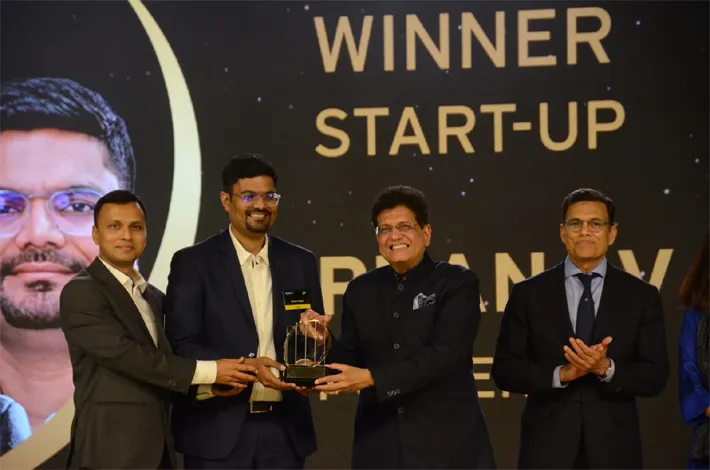Kaleshwaram report set to rock Assembly
31-08-2025 12:00:00 AM

The Telangana Assembly session on Sunday is likely to witness a major showdown between Congress and BRS on the Kaleshwaram Project report with the BC Reservations Bill poised to be tabled in the later half of the day.
The Kaleshwaram project report, prepared by the PC Ghose Commission, will be tabled in the Assembly at 9 am on Sunday. Chief Minister A. Revanth Reddy is expected to address the Assembly in detail, highlighting the critical observations made by the Commission on the project’s failures and BRS government's role in it. Revanth will speak for at least an hour, provided there are no interruptions. Following his address, he will head to Kerala for a pre-scheduled program with Congress leaders KC Venugopal and Priyanka Gandhi.
After the Chief Minister's address, ministers, MLAs of the ruling party and other parties will be given the opportunity to present their views on the report. The discussions are expected to continue into the later half of the day. CM Revanth Reddy is set to return to Hyderabad by 4:30 pm, in time to attend the second half of the day’s Assembly proceedings.
The government plans to table the Kaleshwaram report first, followed by the BC Reservations Bill if the House functions smoothly. However, if the opposition, particularly the BRS, disrupts the proceedings, the Assembly might be adjourned for a few days, with plans to reconvene after the Ganesh Nimajjanam celebrations and a break to assess the situation following ongoing heavy rains and flooding.
In a significant move to promote social justice and inclusivity, the State Cabinet has approved a 42% reservation for Backward Classes (BCs) in local body elections. Revenue Minister Ponguleti Srinivas Reddy emphasized that this big decision would be tabled as a bill in the Assembly.
He highlighted that the bill has the potential to significantly enhance the representation and welfare of marginalized communities, including BCs, minorities, and other disadvantaged groups. Minister Reddy also mentioned that the government has consulted various commissions and conducted public consultations to ensure that the bill is constitutionally sound and meets public expectations. The government is expecting to receive broad support in the Assembly for the bill.
Additionally, BC Welfare Minister Ponnam Prabhakar confirmed the implementation of a 42% quota for BCs in local body elections. While an ordinance to remove the 50% cap on reservations in local bodies is still pending with the Governor, the government is optimistic about the bill’s passage, as there is considerable support within the Assembly.
Local Body Elections
The Telangana State Cabinet also approved the conduct of local body elections, which must be held before September 30 as per a High Court order. A notification is expected soon, with elections likely in September if everything goes as planned.
Kaleshwaram Probe aftermath
The Telangana Legislative Assembly is set to witness a high-stakes showdown as the ruling Congress government plans to table the Justice P.C. Ghose Commission’s report on the alleged irregularities in the Kaleshwaram Lift Irrigation Scheme (KLIS) on August 31, 2025, despite it being a Sunday. This unusual scheduling, as sources suggest, is a strategic maneuver by the Congress to outwit the opposition Bharat Rashtra Samithi (BRS), which has fiercely contested the report’s legitimacy. The 665-page report, submitted on July 31, after a 15-month probe, has ignited a political firestorm, with the BRS labeling it as "politically motivated" and challenging its legality in the Telangana High Court. The arrests of BRS leaders on Saturday during protests against the report further escalate tensions, setting the stage for a contentious session that could see disruptions, a potential boycott, or even suspensions.
The Justice P.C. Ghose Commission, led by the former Supreme Court judge, was constituted on March 14, 2024, to investigate alleged irregularities in the planning, design, construction, and maintenance of the Kaleshwaram project’s Medigadda, Annaram, and Sundilla barrages. The report holds former Chief Minister K. Chandrasekhar Rao (KCR) “directly and vicariously accountable” for procedural and financial lapses, citing his sole decision-making in relocating the project to Medigadda and bypassing Cabinet approvals. Former ministers T. Harish Rao and Eatala Rajender, along with several officials, were also indicted for their roles. The report highlights massive cost escalations, flawed designs, and suppression of expert recommendations, describing the Rs 1.1 lakh crore project as a “colossal waste of public money” due to governance failures.
The Congress, under Chief Minister A. Revanth Reddy, is leveraging the report to corner the BRS, framing the Kaleshwaram project as an economic and engineering disaster. Irrigation Minister N. Uttam Kumar Reddy is expected to table the report on September 1, with discussions likely to dominate the session. The Congress aims to capitalize on the report’s findings to reinforce its narrative from the 2023 Assembly elections, where the sinking of Medigadda barrage piers became a major poll issue. By scheduling the session on a Sunday, the Congress appears to be preempting the BRS’s legal challenge, which seeks to quash the report on grounds of procedural violations under the Commission of Inquiry Act, 1952.
The Telangana High Court recently declined to stay the report but directed the government to refrain from acting on it until tabled in the Assembly, adding pressure to proceed swiftly.
The BRS, led by KTR and Harish Rao, is gearing up for a robust counterattack. The party has demanded a full copy of the report, alleging that the Congress released a selective 60-page summary to push a political narrative. BRS leaders have petitioned the Assembly Speaker for permission to present a PowerPoint defense, though Congress may reject this, citing a precedent set by KCR in 2015. The arrests of BRS leaders during Saturday’s protests signal the government’s intent to curb disruptions, but the opposition remains defiant. Sources suggest KCR may skip the session, leaving Harish Rao to lead the charge. The BRS could resort to disrupting proceedings, risking suspensions, or opt for a boycott to protest what they call a “witch-hunt.”
Beyond the Kaleshwaram issue, the session is expected to address other pressing concerns, including urea shortages, flood damage from recent heavy rains, and the pending 42% Backward Classes (BC) reservation bills. The Congress is likely to use these debates to further pressure the opposition, particularly the Bharatiya Janata Party (BJP), which faces criticism for the Centre’s delay in approving the BC quota. The BJP, caught between supporting the probe’s findings and defending its stance on reservations, may struggle to assert itself as a viable opposition force.
As Telangana’s political landscape braces for this stormy session, the Kaleshwaram report’s tabling marks a pivotal moment. For Congress, it’s an opportunity to cement its governance credentials and expose alleged BRS mismanagement. For the BRS, it’s a battle to salvage its legacy and challenge the report’s credibility. With legal, political, and public scrutiny intensifying, the session could reshape Telangana’s political narrative, influencing upcoming local body elections and beyond.
Telangana’s 42% BC Reservation: Can it follow Tamil Nadu’s path?
Telangana’s 42% BC reservation faces significant legal and political barriers. While Tamil Nadu’s Ninth Schedule strategy offers a model, post-2007 judicial scrutiny, empirical data requirements, and Central government dynamics make success uncertain. Telangana must bolster its data, secure political support, and prepare a robust legal defense. Without these, the quota risks being struck down, mirroring Bihar’s fate, leaving Telangana’s affirmative action goals in jeopardy.
In March 2025, the Telangana Legislative Assembly passed bills to implement a 42% reservation for Backward
Classes (BCs) in education, employment, and local body elections, pushing the total quota to 67% (including 15% for SCs, 10% for STs, and 10% for EWS). This move, aimed at addressing the needs of BCs, who form 56.33% of the population per a 2023-24 caste survey, faces legal and political hurdles due to the Supreme Court’s 50% reservation cap set in the 1992 Indra Sawhney case. Telangana seeks to emulate Tamil Nadu’s 69% reservation model, protected under the Ninth Schedule,
but evolving judicial precedents and political dynamics complicate its prospects. This analysis examines Telangana’s chances and key challenges.
Tamil Nadu’s Precedent
Tamil Nadu’s 69% quota (50% for BCs, 18% for SCs, 1% for STs) was codified in 1993 via the Tamil Nadu Backward Classes, Scheduled Castes, and Scheduled Tribes Act and placed in the Ninth Schedule through the 76th Constitutional Amendment in 1994, shielding it from judicial review under Article 31B. Bipartisan support, led by Chief Minister J. Jayalalithaa, and interim Supreme Court relief—allowing the quota pending a caste survey—enabled its persistence, despite Tamil Nadu’s incomplete compliance with the survey requirement. Telangana aims to place its 42% BC reservation in the Ninth Schedule to bypass the 50% cap. However, several factors make this challenging.
Legal Obstacles
The Supreme Court’s 2007 IR Coelho ruling subjects Ninth Schedule laws added after April 24, 1973, to judicial review if they violate the Constitution’s basic structure, weakening the protection Tamil Nadu enjoyed in 1994. The 50% cap has been consistently upheld, as seen in the 2021 Maratha Reservation case, where Maharashtra’s quota was struck down for lacking “extraordinary circumstances” backed by empirical data. Similarly, Bihar’s 65% quota, based on a caste survey, was invalidated by the Patna High Court in July 2024, with the Supreme Court refusing to intervene. Telangana’s 67% quota risks similar scrutiny unless supported by robust evidence.
Empirical Data Needs
The Supreme Court (M Nagaraj, 2006) mandates quantifiable data on backwardness, underrepresentation, and administrative efficiency to exceed the 50% cap. Telangana’s caste survey, led by retired bureaucrat Busani Venkateswara Rao, justifies the 42% BC quota based on the community’s 56.33% population share and socio-economic backwardness. However, courts have rejected similar data (e.g., Bihar’s) when it fails to link population to specific deprivation metrics. Telangana must provide granular evidence on education, employment, and political representation gaps with transparent methodology to withstand challenges.
Political and Procedural Challenges
Unlike Tamil Nadu’s 1994 success under a Congress-led Centre, Telangana faces a BJP-led Union government, which may resist a constitutional amendment for Ninth Schedule inclusion due to concerns over setting a precedent or opposition to religion-based reservations (e.g., for Muslim BCs). The bills, passed in March 2025, await presidential assent after referral by Governor Jishnu Dev Varma, with delays prompting accusations of obstruction. A Supreme Court ruling in April 2025 mandates decisions within three months, adding pressure.
Local Body Election Deadline
The Telangana High Court’s mandate for local body elections by September 30, 2025, necessitates implementing the 42% BC quota. An ordinance to amend the Telangana Panchayat Raj Act, 2018, to lift the 50% cap is stalled with the Governor, risking a governance vacuum and the freezing of ₹1,600 crore in Finance Commission funds. The Supreme Court’s 2010 K Krishna Murthy ruling, upholding the 50% cap for local bodies, further threatens the policy.
Strategies and Risks
Telangana is pursuing Ninth Schedule inclusion, strengthening its caste survey data, and leveraging bipartisan support from Congress, BRS, BJP, AIMIM, and CPI. Chief Minister Revanth Reddy has urged Prime Minister Narendra Modi for approval.








